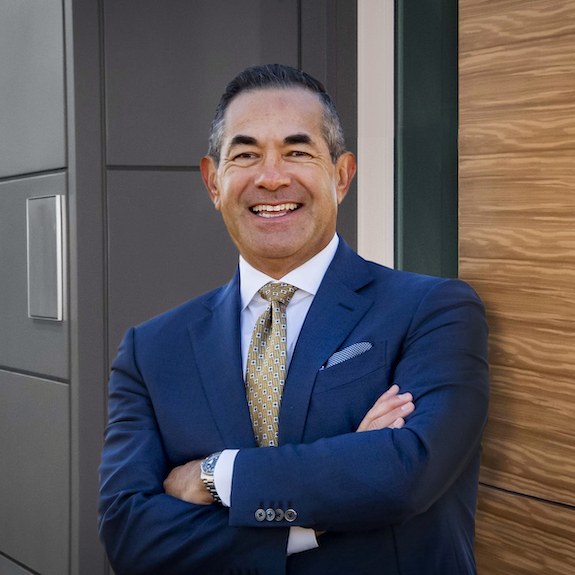Run It Like a Business: 7 Tips to Help Your BCM Program Succeed

The best business continuity managers run their programs like entrepreneurs running their own companies. In today’s post, I’ll share seven tips to help you adopt this world-beating, program-enhancing attitude.
Related on BCMMETRICS: The Human Factor: Optimizing Yourself and Your Business Continuity Team
One of the best models of a good way to run a BCM program is that of an independent entrepreneur. This is because when you’re leading a business, you can’t hide. You have to deliver the goods, take responsibility for your work, and satisfy your customers.
If you take this approach to your role as a BCM manager, you and staff will find greater fulfillment in your work, your managers and stakeholders will be pleased and impressed, your program will thrive, and your company will be better protected.
THE SEVEN TIPS
Here are my seven tips to help you run your program like an independent business.
1. Know your customers and adapt to their needs.
It’s the same whether you’re a CEO or the head of a corporate BCM program. As a business continuity manager, your customers are the departments you work for. You need to understand them, their culture, and their needs. They’re likely to be very different depending, for example, on whether you are employed at an insurance company that has been in business for over 100 years or a high-tech startup that has been in business 6 months. Some of your customers will be tech-savvy, independent, proactive, and enthusiastic. Others might be suspicious, skeptical, or need lots of handholding. Whatever their style, it’s your job to understand them and figure out how to work with them. An independent business doesn’t have the luxury of blaming its customers and neither do you as the head of a BCM program. You need to figure out what makes your customers tick and how you can get the best out of them.
2. Be unique in a positive way.
Successful businesses have a unique, positive identity. Whether you like it or not, your BCM program has a brand within your company. Is that brand positive or negative? You should strive to establish a unique, positive identity for your program within the organization. What are you known for? Being overly complicated, lacking direction, and wasting people’s time? Or being innovative, consistent, and easy to work with? Try to earn a positive brand identity for your program. A reputation for being passionate, consistent, on time, and delivering results is worth its weight in gold in terms of securing people’s cooperation and obtaining support from management.
3. Have a passion for what you do.
Successful entrepreneurs are passionate about what they do and so are successful BCM departments. Business continuity is not something most people jump up and down about. By being passionate yourselves, you and your team can generate a positive attitude among the people you work with. This can work miracles in terms of securing cooperation and obtaining good results for the company. Do your best to get your stakeholders passionate about BCM and how it benefits them and the organization. Find people who have passion; it will yield great results.
4. Be consistently good.
Admired companies deliver excellence consistently. Your team should do the same. Anybody can do a good job once in a while. Your BCM program should strive to provide excellent, steady, and consistent service to your stakeholders day in and day out. The kind of job your team does should not depend on what day of the week it is and who’s providing the service. You have to ensure consistency in approach, methodology, timing, and customer service. Consistent excellence creates happy customers.
5. Compete, improve, excel.
Successful companies are driven to win. Your BCM program should have that same determination to improve and succeed. Success breeds more success, but it can also breed entitlement and complacency. Don’t let your program become stale. Work to improve it, day after day, week after week, year over year. One step at a time might seem like a slow way to travel, but it’s also the only way anyone has ever climbed to the top of Mt. Everest.
6.Keep in touch.
Successful businesses know that staying in touch with their customers is critical. As a BCM program manager, you should likewise keep in close touch with your stakeholders. Communicate to your stakeholders regularly using email, electronic newsletters, phone calls, onsite visits, and so on. Not everyone will read everything you send but some people will. Your messaging will heighten the exposure of your brand. At MHA Consulting & BCMMETRICS, we do our best to maintain positive contact with our clients using multiple channels on a regular basis. My dad taught me that the best exposure is
7. Lead.
Thriving companies have vigorous leaders and you need to be just such a leader for your BCM program. The biggest problem we see in our clients’ BCM programs is not their approach and methodology but a lack of leadership by the business continuity manager. Someone has to step up and steer the ship, coordinating the efforts of the team members and guiding the strategic vision for the brand. The BCM leader has to be an expert motivator and know how to maximize the strengths of the different team members. He or she needs to know where to sit people on the bus and sometimes, if they’re not a good match for the team’s needs and goals, to invite them off the bus. Like a successful business, a good BCM team needs a smart, dynamic, and clear-eyed leader.
THE ENTREPRENEURIAL MINDSET
The most effective BCM leaders approach their job with an entrepreneurial mindset. They’re energetic, proactive, take responsibility, and deliver results. By adopting such an attitude, and following the seven tips outlined above, you can improve your program, impress your stakeholders, motivate your staff, and better protect your organization.
FURTHER READING
- The Human Factor: Optimizing Yourself and Your Business Continuity Team
- Start Here: The Business Continuity Management Guide for Beginners
- Never Break the Chain: Assessing and Managing Supply Chain Risk
- When the Dust Settles: How to Learn from a Business Disruption
- Not If But When: Is Your Company Ready for the Next Global Pandemic?









